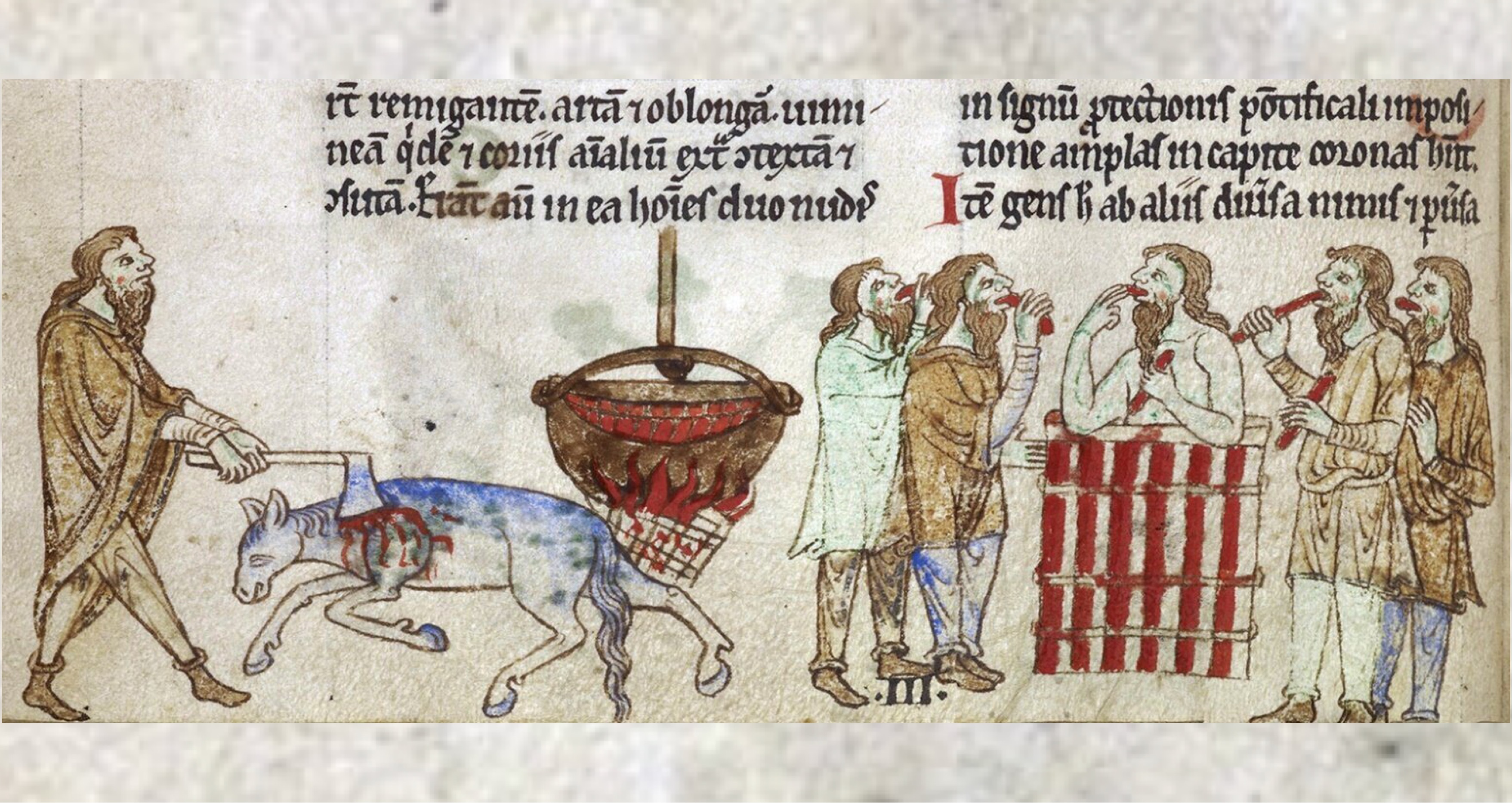As Christianity spread across Europe in the Middle Ages, the consumption of horse meat dropped. However, archeological evidence found that people living in what is now Hungary continued to eat horses. The findings suggest that this decline of eating horsemeat–called hippophagy–was not for religious reasons, according to a study published July 14 in the journal Antiquity.
Consuming horsemeat was fairly common in pre-Christian Europe. It declined over the course of the Middle Ages, and written sources point to the adoption of Christianity as the primary reason why. Eating horses was never officially forbidden by the Church, but many medieval Christian sources called the practice imp culture–or related to Satan–and linked it to the “barbaric” practices of non-Christians.
“Based on documentary sources, abandoning horsemeat consumption is widely associated with the emergence of Christianity in medieval Europe,” the study’s authors write. “However, in the absence of an explicit prohibition (comparable to the ban on pork in Judaism/Islam), a great degree of regional diversity is apparent in the condemnation of horsemeat across Europe.”
[ Related: Scientists discover why horses are such exceptional athletes. ]
Archeozoologist László Bartosiewicz from Stockholm University in Sweden and archeologist Erika Gál from the HUN-REN Research Center for the Humanities in Hungary examined over 500 horse bones found in refuse pits from 198 medieval Hungarian settlements. They analyzed the percentage of horse remains in Medieval garbage dumps within the settlement to calculate if a site had a greater-than-average amount of horse remains. The more horse bones, the greater the likelihood that horses were being consumed.
The team found that the percentage of horse remains in refuse pits is relatively high. People in these settlements were likely still eating horses more than 200 years after Hungary’s conversion to Christianity in 1000 CE with the coronation of King Steven I. Particularly in rural sites, horse bones made up as much as one third of the identifiable remains of livestock among the remaining animal food trash in the settlement.
Horse consumption began to decrease after the Mongol invasion of 1241–42. The team believes that this decline was likely because horses became more scarce and therefore more important to the war effort.
“Horses were valuable war booty and surviving horse stock was probably in high demand for purposes other than food,” the authors wrote.
Additionally, the Mongol invasion killed about 40 to 50 percent of Hungary’s population. In order to re-populate the country, Hungarian and Croatian King Béla IV invited people from the west to settle in the area. These incoming groups were more urbanized than Hungary’s more pastoralist population, so horsemeat was not part of their diet. Instead, these groups preferred to eat pork, since pigs are more suited to sedentary farming.
According to the team, these findings indicate horsemeat consumption did not decline based on religious pressure, but instead due to the decreasing accessibility of horsemeat and demographic shifts within the country. They also show how archaeology can challenge
historical narratives, which can come with their own agendas and are often written long after the actual events.
“Tropes equating hippophagy with ‘barbarity’ have abounded since antiquity,” conclude the authors. “This othering is most poignant in sources that post-date the events they are describing, sometimes by centuries, and possibly portray negative generalizations rather than past ‘reality.’”
Source link
